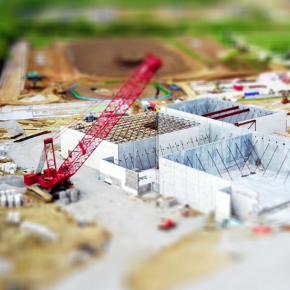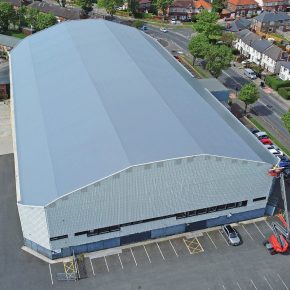
On site health and safety tips for beginners
If it’s your first time managing or working on site, there’s a lot to get to grips with. Safety culture is a huge factor for those working in dangerous industries, and everyone should be on board with the values and attitudes around the issue.
If you’re a bit of a beginner, here are some tips to ensure that those early days run smoothly:
Take on the training
You will be inducted into training on safe practices around the workplace, and it’s vitally important that you engage with these sessions to ensure you are protected at all times. Whether it’s training about how to correctly navigate the site to avoid collisions with working vehicles, or what to do in the event of a fire, you need to know this training to ensure that you and your colleagues are safe.
Know what’s needed on site
Site safety is adhered to in a number of ways, and the equipment you need to work safely all depends on your situation – from the time of day, to the time of year. For example, lighting is imperative for late night work, so ensure you are using tripods with mounted spotlights in the dark. If you deal with asbestos, refuse bags featuring the correct hazardous warning labels must be used. If this type of site safety equipment isn’t in place, be bold enough to ask questions and ensure you are provided with the right protective tools and PPE.
Wear the right PPE
PPE must be worn at all times when carrying out work on site; hard helmets are there to protect you from falling debris and equipment while hi-vis clothing is essential to ensure you are seen at all times by your colleagues and the general public if you are working near roadsides or in public areas. Wear the right PPE for the conditions – in the summer months you may not need a full hi-vis jumpsuit and therefore can wear a hi-vis vest and trousers – just ensure the PPE protocol for your site is still being adhered to.
Communicate clearly
Ensure those you are working with know exactly what you are working on, as well as details of the equipment you are using. Some equipment can be particularly dangerous and may require working collaboratively with others. Therefore, you need to make everyone around you aware of what you’re doing, and you should be listening to what your colleagues are saying as attentively as you hope they’re listening to you.
Don’t use equipment unless you’ve had training
It’s very important you do not operate machinery you have not been fully trained to use. For the most part, general site equipment doesn’t require you to have a qualification to use it – not even chainsaws or compact excavators. However, the correct training is necessary to ensure you are capable of managing risks and avoiding harm to yourself and others.
If you’re just starting out on site, pay regard to these tips, but also make yourself aware of the rules and best-practices your company has in place. Question everything you are unsure of and attempt to adopt the safest practice at all times – it could save your life.
Latest news

23rd April 2024
Geberit brings Parallel World to Clerkenwell Design Week
Visitors to this year’s Clerkenwell Design Week (21 – 23 May) can step into a parallel world and discover the benefits of cleaning with water, thanks to Geberit.
Posted in Articles, Bathrooms & Toilets, Bathrooms, Bedrooms & Washrooms, Building Industry Events, Building Industry News, Building Products & Structures, Building Services, Exhibitions and Conferences, Innovations & New Products, Interior Design & Construction, Interiors, Plumbing, Restoration & Refurbishment, Retrofit & Renovation
23rd April 2024
Mitsubishi Electric Ecodan Heat Pumps and Water Cylinders to be stocked by The Boiler Shop
Mitsubishi Electric’s full range of Ecodan heat pumps and hot water cylinders are to be stocked by one of the north-west’s best established independent merchants, The Boiler Shop.
Posted in Articles, Building Industry News, Building Products & Structures, Building Services, Facility Management & Building Services, Heating Systems, Controls and Management, Heating, Ventilation and Air Conditioning - HVAC, Plumbing, Posts, Retrofit & Renovation, Sustainability & Energy Efficiency
23rd April 2024
Trio of Senior products used in new Nottingham residential scheme
Solutions from Senior Architectural Systems have helped complete The Barnum – a new residential development on Nottingham’s Queen’s Road.
Posted in Aluminium Products, Articles, Building Industry News, Building Products & Structures, Building Systems, Case Studies, Curtain Walling, Doors, Glass, Glazing, Posts, Restoration & Refurbishment, Retrofit & Renovation, Walls, Windows
22nd April 2024
New EJOT role will develop strategic support for UK flat roofing sector
EJOT UK has taken a major step in the expansion of its support for the flat roofing market by appointing one of its most experienced building envelope fastening specialists as its first sector-dedicated business development manager.
Posted in Articles, Building Industry News, Building Products & Structures, Building Systems, Innovations & New Products, Posts, Recruitment, Restoration & Refurbishment, Retrofit & Renovation, Roofs
 Sign up:
Sign up: